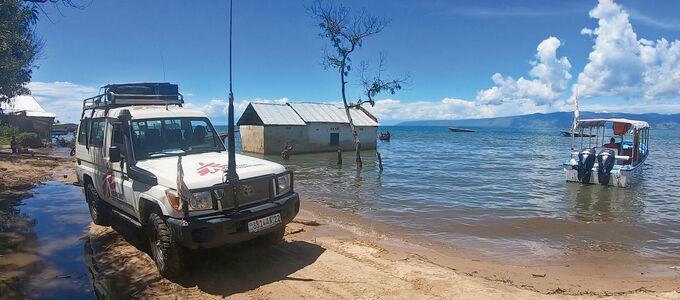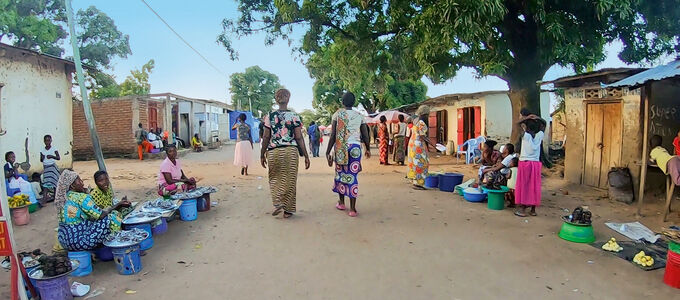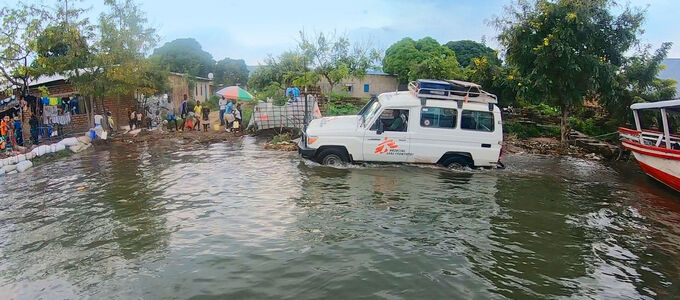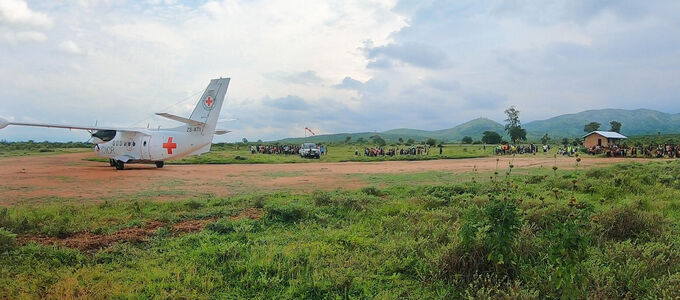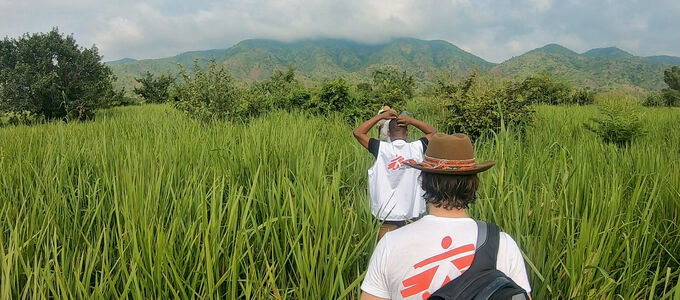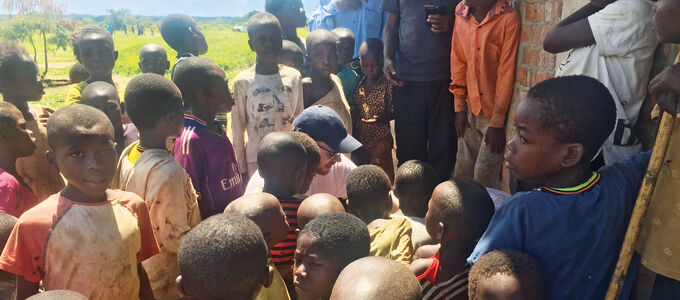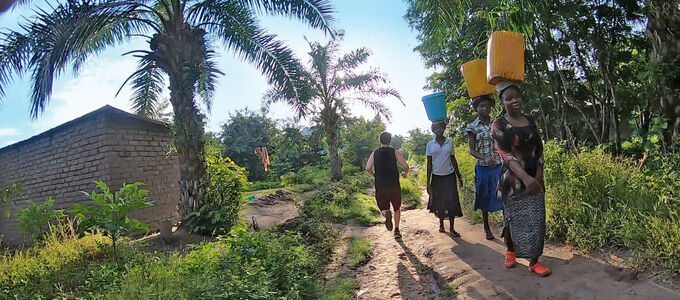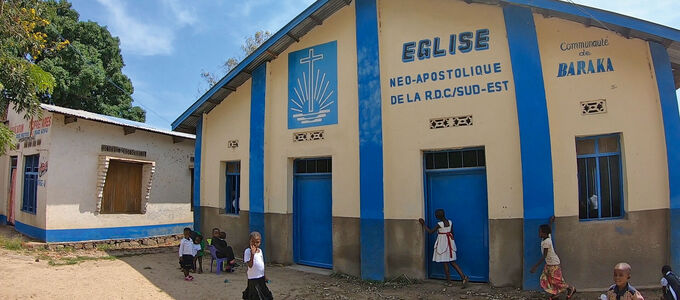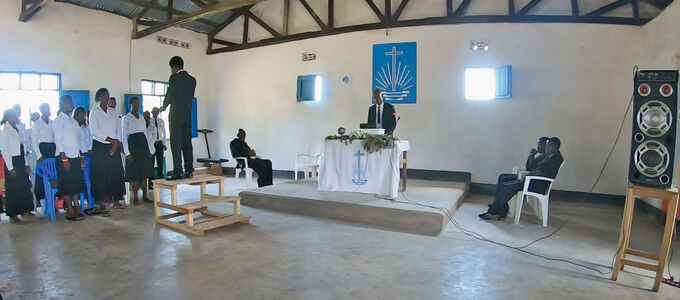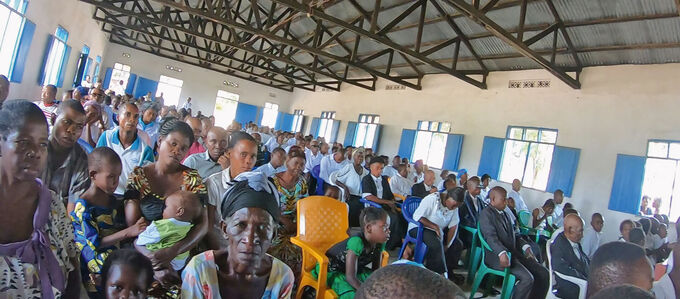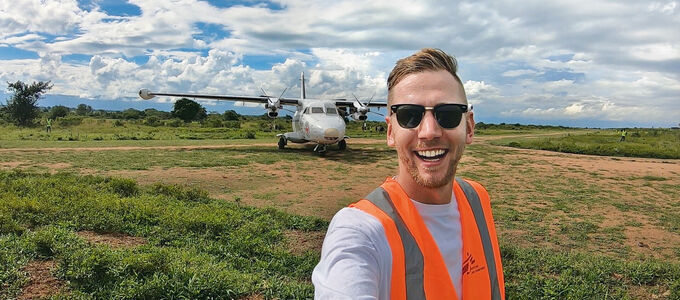
After an accident he decided put his plan into action: Robert went to Central Africa to work for Doctors Without Borders and to help build a clinic. But things did not quite go as expected. This is the rest of his story.
In February 2020 Robert from Hamburg in Germany landed in Baraka in the Democratic Republic of the Congo. It was the rainy season. “It never rains all day, we also have sunshine every day. But when it does rain, it is something a European just cannot imagine. A few weeks ago, some 20,000 people lost their homes to the rain. The rain just washed them away.”
The rainy season means overtime for Doctors Without Borders, as the rains bring disease. Thousands of people in the DRC die from measles, cholera, Ebola, and other diseases every year. A stark contrast to this is the idyllic landscape. Baraka is located on the shores Lake Tanganyika, the second largest lake in Africa, and is surrounded by green hills. “If there were less misery and no threat from rebel groups”, Robert says, “it could be a holiday paradise.”
But the threat from criminals and rebels defines his life more than he imagined possible at first. “I am not allowed to go out alone, and always have my walkie-talkie with me. After dark, we are only allowed out in the car.” The neighbourly relations with the people in Baraka are good, Robert says. “The people here in Baraka know how lucky they are to have Doctors Without Borders here.”
The day-to-day routine
Robert quickly got used to the working routine. Some of his colleagues are in charge of an existing hospital. The others, who together with him are in charge of the construction of the new clinic building, all live in a former hotel. Everyone has their own room there. They spend a lot of time together at work, during meals, and in the evenings. “The companionship is one of the greatest things here,” Robert says. “Our team is made up of doctors and logistic specialists from all over the world, from New Zealand, Italy, Kenya, Uganda, India… We have a lot of fun together.”
There is little time for leisure; sixty-hour weeks are the norm. There is a lot to do, and it is often unexpected. Robert quickly gave up the idea of only being responsible for finance and staff planning for the hospital construction. “Basically, I do everything that comes up. For example, I see to the local airstrip, where a bush plane lands once a week. I check to see if the airstrip is usable or if we need to repair rain damage before it lands. Then I let the pilot know that he can land and even direct him, if required. I have never done anything like it before.”
The experience of faith
Robert loved his work in the Congo and quickly found friends among his colleagues. What weighed on him, though, was the uncertainty of when he would be able to see his wife. They had planned to see each other every three months; the first time in South Africa. The flights were already booked, but when COVID-19 started to spread in Africa, the DR Congo closed its borders and Robert could not leave the country for the time being.
In this situation, he was doubly grateful that, contrary to his expectations, he would be able to attend New Apostolic services after all. “While jogging I passed a house with our emblem on it. I had come across the New Apostolic Church in Baraka. I went there the following Sunday. There were only two rows of chairs in the church. As the service progressed, more and more people came, each bringing their own plastic chair. By the end of the service, it was really crowded. I didn’t understand anything of the sermon, which was in Swahili, but I was able to sing along and felt at home. The next Sunday the District Evangelist conducted the service, which was interpreted into French for me so that I could understand something. Finding the New Apostolic congregation here was an amazing experience of faith for me.”
The prospects
The time spent with Doctors Without Borders changed Robert. He says, “I learned that planning is by far not as important as Germans always think. In Baraka we also plan, but when we have heavy rains or something else comes up, all our plans have to be thrown overboard and we react spontaneously as the situation requires. I thought I was quite spontaneous before already, but here you are challenged in an entirely new way.”
From his perspective, people in Europe often fail to appreciate how lucky they are. “Many people here in the DRC make a living by chipping away at blocks of stone to make gravel—with a hammer.” There are hardly any technical aids. And yet the people make the best of their situation, they come to work in the morning with a joke and a smile, they sing and dance whenever they can…”
Robert is quite aware that returning to his old life will not be easy. “What I did here was vital. I cannot say that about my work at home… I don’t know if I can just go back to doing what I was doing before.”
This is an excerpt from a more exhaustive article that was originally published in spirit 04/2020.






